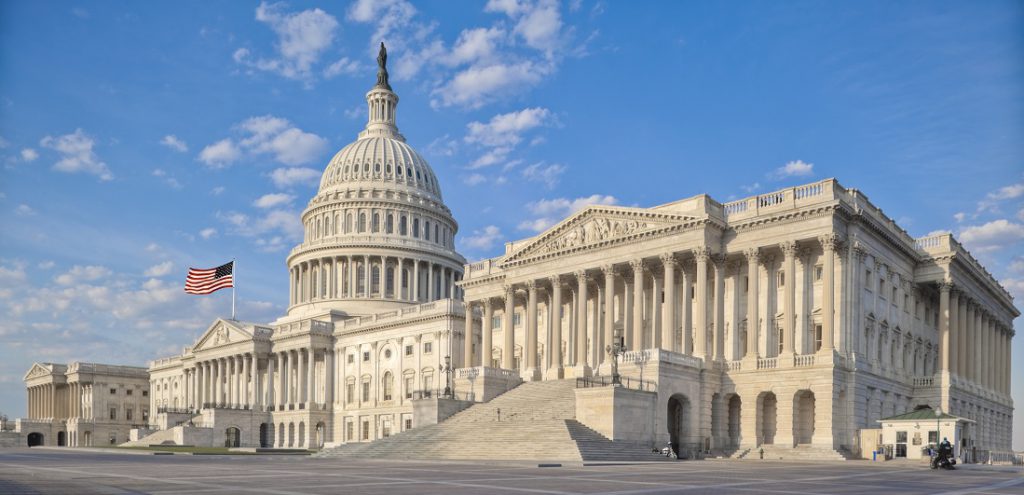When you consider the dangers of indoor tanning, it’s difficult to believe the practice is still legal for anyone, let alone children. Ultraviolet (UV) radiation is a proven human carcinogen, and more than 419,000 cases of skin cancer in the U.S. each year are linked to indoor tanning. Yet we know that teenagers around the country are still using UV tanning beds. While Brazil and Australia lead the way in indoor tanning legislation — tanning salons are completely banned in both countries— several other nations have also taken a step in the right direction by banning minors from using tanning beds. Back in 2015, the Food and Drug Administration (FDA) tried to make the United States one of them, proposing regulations to ban anyone under the age of 18 from patronizing tanning salons. Unfortunately, the proposed rule has still not been finalized.
So, like many other regulatory issues, who can use tanning salons is still left to state and local government to decide. To date, 44 states and the District of Columbia either ban or regulate indoor tanning by minors, and numerous counties and cities have enacted their own laws or regulatory measures. This has resulted in varying levels of indoor tanning restrictions across the country.
Sign the Petition: Tell the FDA to Ban Teen Tanning!
A Patchwork of Restrictions
Back in 2009, Howard County, Maryland, became the first local jurisdiction to ban indoor tanning for minors. California became the first state to do so in 2012, quickly followed by Vermont. California State Senator Ted Lieu, who sponsored California’s bill, said he was inspired to champion the law because of statistics showing that skin cancer is a leading cause of death in women between the ages of 25 and 34.
“One reason we wanted to ban it for children under 18 is because the medical evidence shows that the more exposure you get to UV rays early on, the worse it is later in life,” he said. “Melanoma doesn’t happen right when you walk out of the tanning salon. It happens years later.”
During the following six years, 13 more states plus the District of Columbia completely banned indoor tanning for anyone under 18. This was due to a wave of public support for legislation, often led by former tanning bed users themselves. One such advocate was Delaware resident Samantha Jenkins, a then 24-year-old who had a 10-year history of indoor tanning. The habit caught up to her when she was diagnosed with melanoma.
“I never recall anyone saying (before tanning) that one day you’ll end up having scars from skin cancer,” said Jenkins, who provided testimony for a bill banning indoor tanning for minors in Delaware. “If I can prevent one soul from going through what I’ve gone through psychologically and physically, I’ve done my part.”
The bill in Delaware passed. But of course, states like this constitute only a little more than one-third of the states in America. The remaining states have placed some restrictions on who can use tanning salons that vary in severity. Some states are incredibly lenient: Virginia, for example, only requires that people under the age of 15 obtain written permission from a parent or guardian to tan. The permission form is valid for six months, and once a teen turns 16, they face no restrictions whatsoever.
Other states have enacted stricter regulation but still fall short of an all-out ban for minors. Indiana and Wisconsin ban anyone under the age of 16 from using tanning beds, and require minors who are 16 or 17 to have permission in the form of a document signed by a parent or guardian in the presence of the tanning bed operator — a restriction we know many teens will try to find ways to work around.
Moving Ahead
Many activists and politicians have made moves to minimize the use of tanning devices on the national, as well as state and local levels. One of the most successful efforts was included in the 2010 Affordable Care Act (ACA), stipulating a 10 percent “tanning tax” on any taxable indoor tanning service in the country. The tax may have been, in part, responsible for the dip in indoor tanning by minors. Indoor tanning among U.S. high school students decreased by 53 percent between 2009 and 2015 — the ACA went into effect in early 2010. Though the tax may be in danger (the most recent proposed health bills included provisions to repeal the tanning tax) The Skin Cancer Foundation and several other health organizations have urged Congress to maintain the tax.
The Skin Cancer Foundation is also in favor of the FDA’s proposed total ban on minors using tanning beds. Though that hasn’t worked out yet, recently more and more states are making positive changes to their indoor tanning regulations. Laws banning minors from indoor tanning went into effect in Oklahoma and West Virginia in 2017, and the governor of Rhode Island signed legislation mandating a ban in June 2018. New York’s bill prohibiting minors recently passed the state senate and is moving on to the governor to be signed into law. A bill proposing a ban also drew strong support in Nebraska earlier this year. Still more states are proposing less drastic changes (Tennessee is considering raising the minimum age for indoor tanning from 14 to 16, for example).
Some lawmakers say the changes are long overdue, pointing to the wealth of research on the topic.
“The evidence of the dangers of tanning to young people is just overwhelming,” said Rhode Island Senate Majority Whip Maryellen Goodwin, who sponsored the state’s bill. “All tanning is skin damage, and even one single tanning session drastically increases a young person’s risk for skin cancer. It’s time to start treating tanning like the public health threat that it really is.”
What You Can Do
Sign the Petition: Tell the FDA to Ban Teen Tanning!
Many of these laws, both in place and proposed, fall short of what many healthy skin advocates are aiming for — a ban on indoor tanning for everyone. Change may be slow going, but we all have the power to help move things along by supporting researchers, doctors and organizations that continue to raise awareness about the very real dangers of UV tanning beds. Take a moment to contact your state and local representatives to let them know you support restrictions on indoor tanning!




